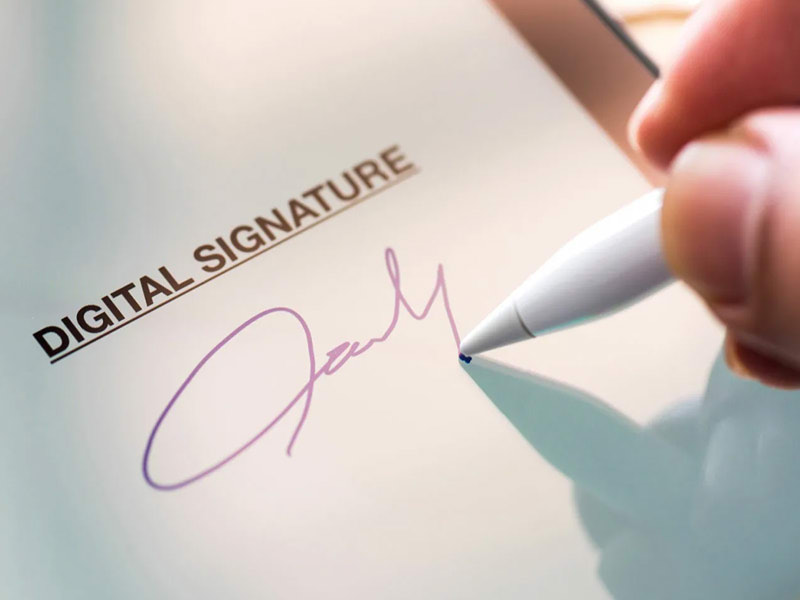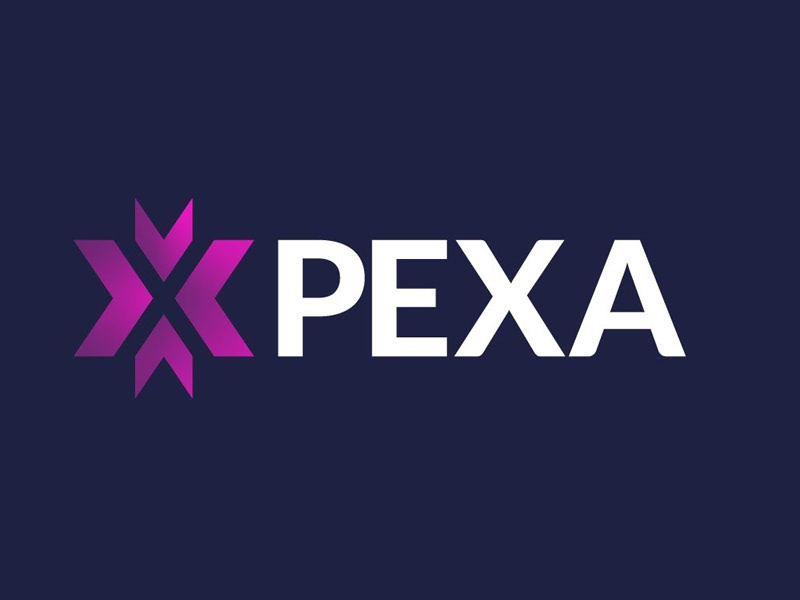Table of Content
- Can deeds be signed electronically in Queensland?
- The Current Landscape for Electronic Deed Signings
- What Documents Can be Signed Electronically in Queensland?
- What Documents Can’t be Signed Electronically in Queensland?
- The Technical Aspects of Electronic Signature Legislation in Queensland
- Do I need Electronic Identity Verification for eConveyancing in Queensland?
- What is the Electronic Conveyancing Act in Queensland?
- What Electronic Conveyancing Services are Available in Queensland?
- Who can help with online conveyancing in Queensland?
Today, digital solutions are available for each stage of the conveyancing process, enabling some transactions to be entirely conducted through a digital conveyancing experience. Nevertheless, it’s worth noting that during the conveyancing process, paper documents are often still required.

Can deeds be signed electronically in Queensland?
One of the unforeseen consequences of the COVID-19 pandemic was the rapid adoption of technology in various aspects of life. During the initial phase of the pandemic, signing documents electronically were temporarily introduced as a practical solution. However, this temporary measure became a permanent one in November 2021, following the passage of the Justice and Other Legislation Amendment Act 2021 (QLD), which amended the Property Law Act.
The change allowing electronic signatures for property deeds addressed the impracticality of in-person signings and brought Queensland in alignment with other jurisdictions such as NSW and Victoria.
The Current Landscape for Electronic Deed Signings
The table below provides an overview (only) of States and Territories that have implemented electronic signing for deeds:
|
State/Territory |
Electronic Signing of Deeds Allowed |
Relevant Legislation |
| Queensland | √ Yes – witness usually not required | Property Law Act 1974 (QLD) |
| Electronic Transactions (Queensland) Act 2001 (QLD) | ||
| New South Wales | √ Yes – witness is required | Conveyancing Act 1919 (NSW) |
| Electronic Transactions Act 2000 (NSW) | ||
| Northern Territory | X – Not permitted | N/A |
| Western Australia | X – Not permitted | N/A |
| South Australia | X – Not permitted | The Electronic Communications Act 2000 (SA) does not apply to documents that must be witnessed (such as a deed). |
| Australian Capital Territory | X – Not permitted | N/A |
| Victoria | √ Yes – witness not required | Electronic Transactions (Victoria) Act 2000 (Vic) |
| Tasmania | X – Not permitted | N/A |
As with most legislative changes, recent amendments raise practical questions, such as ‘if the deed is governed by Queensland law but I am residing in NSW, can I sign electronically?’ and ‘if the deed is governed by Queensland law but one party resides in South Australia and the other party resides in the Northern Territory, can all parties sign electronically?
If the document is subject to the laws of a state that endorse electronic signatures, individuals can electronically sign it in accordance with that state’s regulations, regardless of their place of residence. The permissibility of electronic signing hinges on the governing laws specific to the document in question.

What Documents Can be Signed Electronically in Queensland?
Australian law typically acknowledges the validity of electronic signatures for the majority of contracts. Nevertheless, there are three primary areas where electronic signing may face restrictions: deeds, signatures on behalf of companies, and witnessing.
However, in Queensland, the signing of deeds is permissible. Queensland has introduced amendments to several legislations, including the Property Law Act 1974 (QLD), Oaths Act 1867 (QLD), and the Power of Attorney Act 1998 (QLD), which now permit individuals to electronically sign various documents, including deeds, oaths, affidavits, general powers of attorney, and declarations.
What Documents Can’t be Signed Electronically in Queensland?
Generally, this pertains to documents that necessitate attestation, authentication, verification, or witnessing by someone other than the document’s author, as well as documents requiring confirmation by post. And Legislation Amendment Act 2021 (QLD) mentioned above doesn’t alter this.
For example, Wills and Enduring Powers of Attorney can’t be electronically signed in Queensland. In Queensland, the temporary regulations that previously allowed remote witnessing of Wills, Enduring Power of Attorney documents, and advance health directives have lapsed. Consequently, these documents must now be executed on paper in the physical presence of the necessary witnesses.
Stamp duty in Queensland still requires a physical signature.
The same applies to Titles Documents: Documents governed by the Land Act 1994 (QLD) or the Land Title Act 1994 (QLD) may still require wet-ink signatures on paper.
To understand whether electronic signature legislation falls under your specific case, it is better to consult a conveyancing solicitor.

The Technical Aspects of Electronic Signature Legislation in Queensland
The Commonwealth and Queensland Electronic Transactions Acts (ETAs) remain technology-neutral when it comes to supporting e-signatures, as long as the ETAs’ criteria for e-signatures are satisfied. This approach offers individuals and businesses the flexibility to choose the signature technology that best suits their particular requirements.
Various forms of e-signatures adhere to legislative criteria to varying extents. For instance, a digitized wet signature used to verify a person’s identity may carry less weight than encrypted digital signature certificates. The admissibility of these technologies in a court of law and their capacity to align with established standards will be contingent upon meeting the criteria stipulated in applicable laws and relevant standards.
Additionally, guidance is available from the Australian Government Information Management Office through the e-Authentication Framework, providing insights into the use of e-signatures.
Acceptance of e-signatures necessitates specific actions from both the individual signing the document or communication (referred to as the signer) and the individual receiving/reading the document or communication (referred to as the recipient).
Do I need Electronic Identity Verification for eConveyancing in Queensland?
Both property buyers and sellers are required to complete identity verification, which can be made in Australia using one of the online Identity Verification Services. This eliminates the need to physically visit a post office or a lawyer’s office for paper photocopies of identity documents.
Sellers usually have to complete and electronically sign a mortgage discharge authority, provided they have a mortgage. In some cases, buyers are tasked with signing stamp duty forms, which may have specific requirements depending on the jurisdiction.

What is the Electronic Conveyancing Act in Queensland?
Electronic conveyancing, also known as eConveyancing, becomes mandatory in Queensland starting on February 20, 2023. This means that specific documents and instruments related to property transactions must be digitally prepared, signed, settled, and lodged through an Electronic Lodgement Network (ELN) by a subscriber unless exempted.
These documents encompass transfers, mortgages, caveats (both new and withdrawals), priority notices, and transmissions by death. Transactions executed by a party before the mandatory commencement date can still be submitted in paper form.
Subscribers can lodge the required documents with either of the two authorized ELN operators in Queensland, namely Property Exchange Australia Limited and Sympli Australia Pty Ltd. It’s essential to note that not all the necessary instruments are available through both ELNs, and all parties involved in the transaction must utilize the same ELN.
The implementation of mandatory eConveyancing aims to ensure a consistent and standardized service for all parties engaged in property transactions in Queensland.

What Electronic Conveyancing Services are Available in Queensland?
There is currently one main Electronic Lodgment Network Operator (ELNO) approved to provide eConveyancing subscription services to financial institutions and legal practitioners known as Property Exchange Australia Ltd (PEXA).
What is important to know about this service for the buyer and seller? Firstly, it’s important to understand that this service is not some kind of ready-made decision for online conveyancing. PEXA is a service for lawyers (not for buyers and sellers). As mentioned above, from 2023, these services are an obligatory part of the conveyancing process.
Secondly, as mentioned above, there are documents with which you still can’t work in electronic format.
All this implies that although the Queensland government is actively moving towards electronic document processing, this is not always the way to make the transactions easier.
Many of those who search on Google for ‘online solicitor in Brisbane’ or ‘conveyancing online‘ encounter difficulties in practice, and online conveyancing is dashed by the reality of Queensland legislation.

Who can help with online conveyancing in Queensland?
If you need a solicitor and want to avoid paperwork, if possible, then our GM Law team is ready to help you. We have been working in the Queensland market for more than 20 years and have always tried to keep up with modern technologies.
If you have any questions, you can ask us via chat, contact us through the Contact Us form, or call 1300 185 636. If you are still in the search for a good conveyancer, we recommend you fill out our Instant Quote, so you have a better understanding of the fee ranges and get a clearer vision of the necessary documents list.


